Can You Legally Get Married in a Church in the UK? Everything You Need to Know
Getting married in a church in the UK is a beautiful way to start your life together. Certain requirements must be met to legally get married in a church. For the Church of England, you can marry in your local church or one where you have a legal connection. If you don’t have a connection, attending services for six months might create one, providing you with the chance to tie the knot in your dream location.
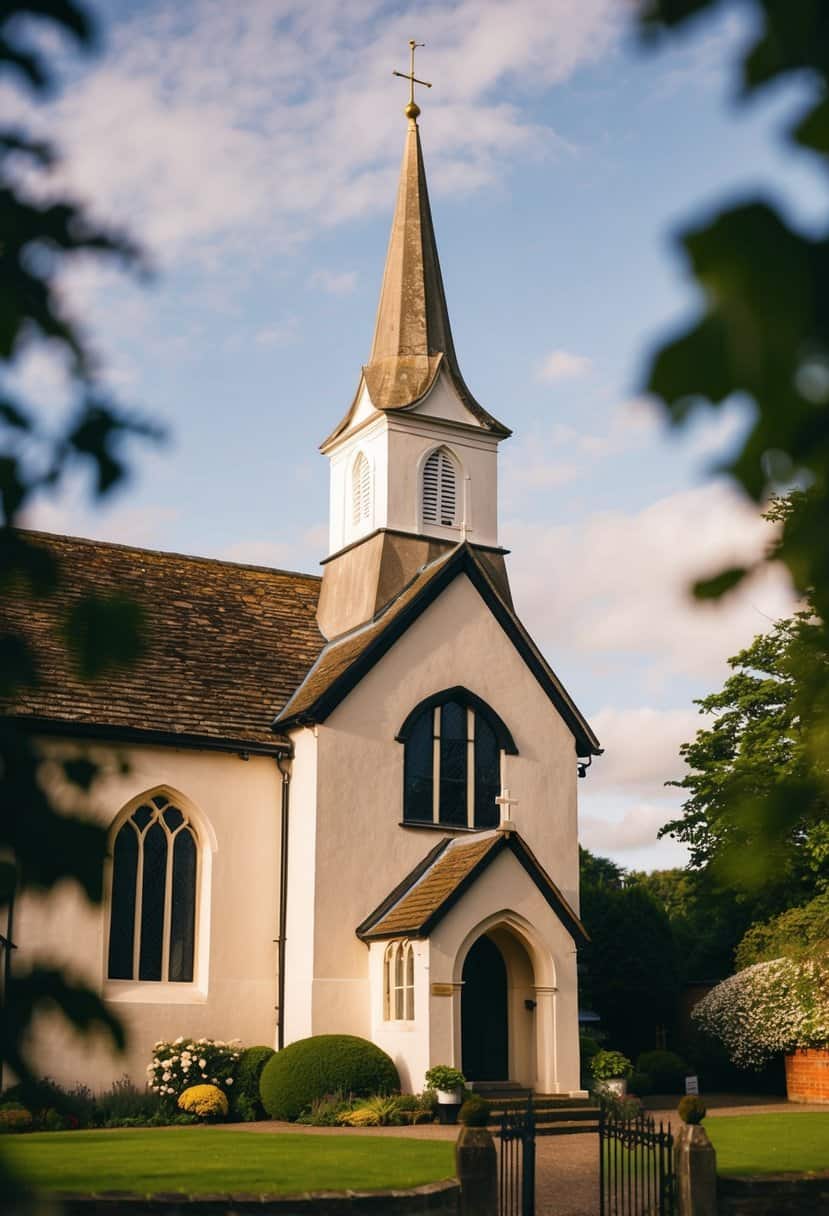
Your beliefs, or whether you’ve been christened, won’t stand in your way. Churches offer a welcoming setting regardless of your past involvement with the church. If you’re considering a church wedding, it’s good to know that this choice comes with a new legal status that comes with many benefits.
Certain restrictions apply, like for same-sex couples, who cannot marry in an Anglican church. Before diving into planning, make sure you understand the different legal and church requirements. This ensures your special day goes off without a hitch.
Legal Requirements for Marriage in the UK

When planning to get married in the UK, it’s important to understand the necessary steps and legal requirements. These include checking if you’re eligible to marry, giving notice, and obtaining the right documents for your ceremony.
Eligibility to Marry
In England and Wales, you must be 18 or older to marry. Previously, individuals aged 16 or 17 could marry with parental consent, but the law has changed. If one or both individuals are from outside the European Economic Area, additional rules apply. You will need to prove your identity and nationality when preparing to marry in a religious or civil ceremony. For church weddings, such as in the Church of England, the vicar has certain legal responsibilities before permitting the marriage.
Notice of Marriage
Notifying the local register office of your intent to marry is required. This is known as giving notice. You’ll need to provide documents, such as your passports and proof of address. The notice is publicly displayed for 28 days.
If you’re marrying in a district different from where you give notice, you must inform the register office. If you’re planning to marry in an Anglican church, certain rules differ, especially for same-sex couples who can’t marry in these churches, according to GOV.UK details.
Marriage Certificate and Schedule
A marriage schedule or an equivalent document is necessary for your ceremony. This document is signed during the wedding by you, your partner, and witnesses. It is then returned to the register office for issuing the marriage certificate.
For religious ceremonies, the person officiating will ensure the marriage schedule or document is properly signed and returned. Make sure all information is accurate, as this document is essential for obtaining your official marriage certificate, which serves as legal proof of your marriage. Each step in the process requires careful attention to detail to ensure everything is executed smoothly.
Church of England Marriages
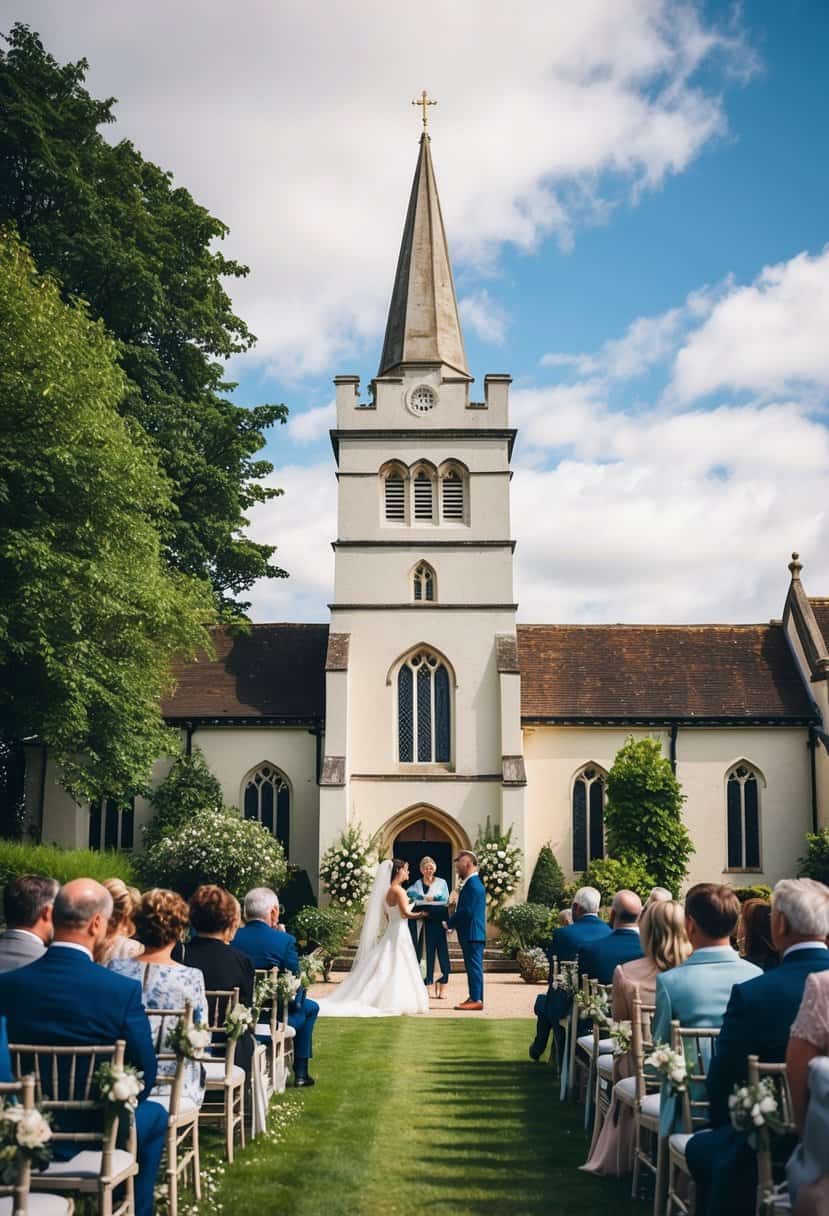
When planning a Church of England marriage, it’s important to understand the process and requirements. You need to consider how the ceremony is conducted, establish your qualifying connection to the church, and adhere to church laws.
Marriage Ceremony Process
The Church of England offers a religious ceremony that can be quite traditional. It’s typically led by a vicar. During the ceremony, you can expect hymns, prayers, and Bible readings. The vicar may also give a sermon. You might include some unique, personal touches, but the core structure of the service remains consistent.
You can involve a Catholic priest if you wish, though a Church of England vicar has to officiate for legal reasons. This inclusion can be through prayers or readings. Planning the ceremony can take time, so early discussions with your vicar are helpful. This ensures you have clarity on what is possible and allowed.
Qualifying Connection to Marry in a Church
To marry in a Church of England, you need a qualifying connection. This means either you or your partner should have lived or regularly attended the church, or maintain other official links like family ties. Simply renting in the parish does not make you eligible. Regular attendance usually involves joining public worship over six months.
If you don’t have this connection, you may need special permissions or licensing which should be discussed with the local vicar. Clarifying your connection early in the planning keeps potential roadblocks at bay. Understanding these aspects ensures you meet all the legal and religious criteria.
Church Law Considerations
Church law plays a critical role in Church of England weddings. It’s not legally possible for same-sex couples to marry in the Church of England. Additionally, remarriage under these laws requires specific considerations, especially if you’ve been married before.
The vicar has the authority to decide if a remarriage can take place. Factors in this decision include previous marriages and their circumstances. Legal requirements do not restrict the day of the week for a wedding. However, coordination with the church’s schedule and the vicar’s availability is key.
By understanding church law and discussing your situation with church officials, you ensure your wedding is eligible and aligned with all necessary guidelines.
Civil Ceremonies Vs. Religious Ceremonies
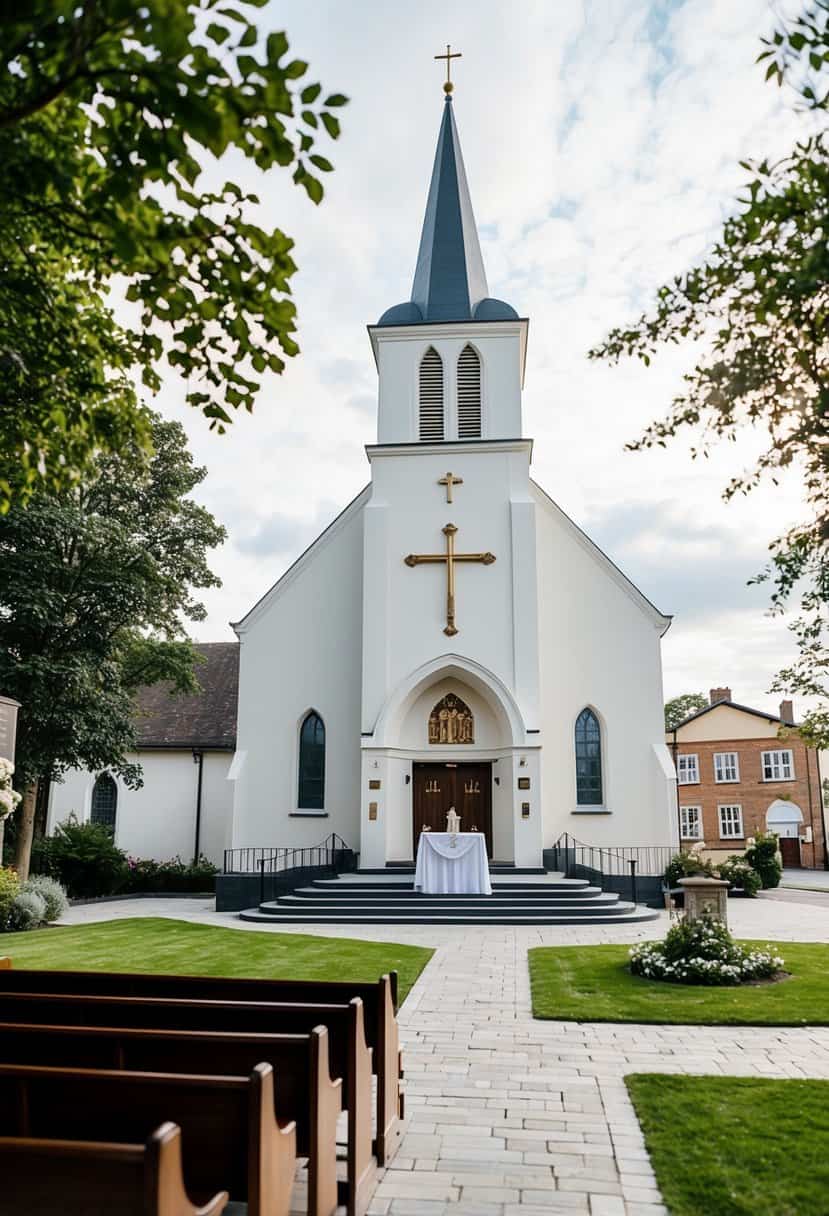
In the UK, you can choose between civil ceremonies and religious ceremonies for your wedding. Each type has different procedures and requirements that you should know about.
Civil Marriage Options
A civil ceremony is a non-religious event conducted in a venue approved by the local council, such as a register office or a licensed venue. To have a civil marriage, you must notify your local registrar at least 29 days before the wedding. You will also need two witnesses to be present during the ceremony.
Civil ceremonies allow you to have the flexibility to include personal vows, music, or non-religious readings. You can customize the ceremony to reflect your relationship without any religious elements. This is a good choice if you prefer a formal yet simple event.
Religious Ceremony Requirements
A religious ceremony in the UK can take place in a church or another place of worship. You can choose from several faiths, including Christianity, Judaism, Islam, and Hinduism. The procedure for a religious marriage often involves specific rituals and requirements of the chosen faith.
Some religious ceremonies may also require a civil component to meet legal requirements. You might need to register your marriage separately with a registrar. Check with your place of worship if additional steps are necessary. Both a religious officiant and witnesses must be present to make the marriage legally binding.
For more information about civil ceremonies, visit this page on civil ceremonies.
Same-Sex Weddings in Religious Venues
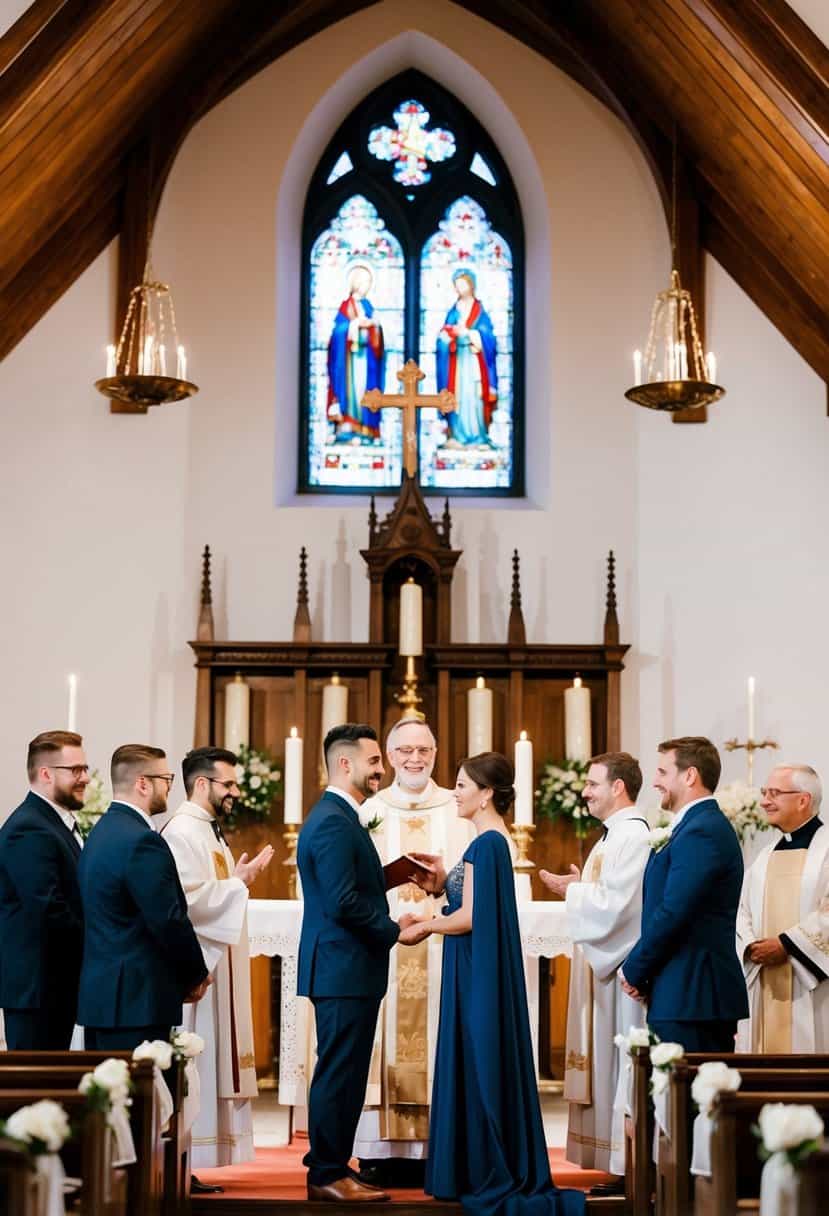
In the UK, the rules for same-sex weddings in religious venues vary depending on the religious institution’s stance. Some religious organizations have opened their doors to same-sex couples, while others have opted for blessings over marriage ceremonies.
Legal Provisions for Same-Sex Marriage
Same-sex marriage became legal in England and Wales in 2013. The Marriage (Same Sex Couples) Act allows religious institutions to conduct these ceremonies if they choose. However, it does not force them to do so. Each religious group must “opt-in” to perform same-sex marriages. This ensures that religious freedom is respected, allowing different groups to follow their convictions.
Almost all religious venues can host same-sex weddings if the religious organization allows it. However, you can’t get married in some Anglican churches, such as the Church of England, which does not permit same-sex marriages. It is important for couples to communicate with religious leaders to confirm if their venue of choice supports same-sex marriages.
Church of England Stance on Same-Sex Weddings
The Church of England has taken a unique stance regarding same-sex unions. While it does not permit same-sex marriages, the church does allow blessings for same-sex couples. This was a significant change made in 2023 when the church authorized clergy to offer prayers of blessing for same-sex partnerships (BBC News).
These blessings are optional, with clergy members having the choice to participate or not. This compromise aims to respect traditional views while acknowledging the need for inclusion. If you are a same-sex couple seeking a church wedding in England, knowing these distinctions is crucial in finding a suitable venue. Consider venues like the Methodist Church, which permits same-sex marriage ceremonies.
Planning Your Church Wedding
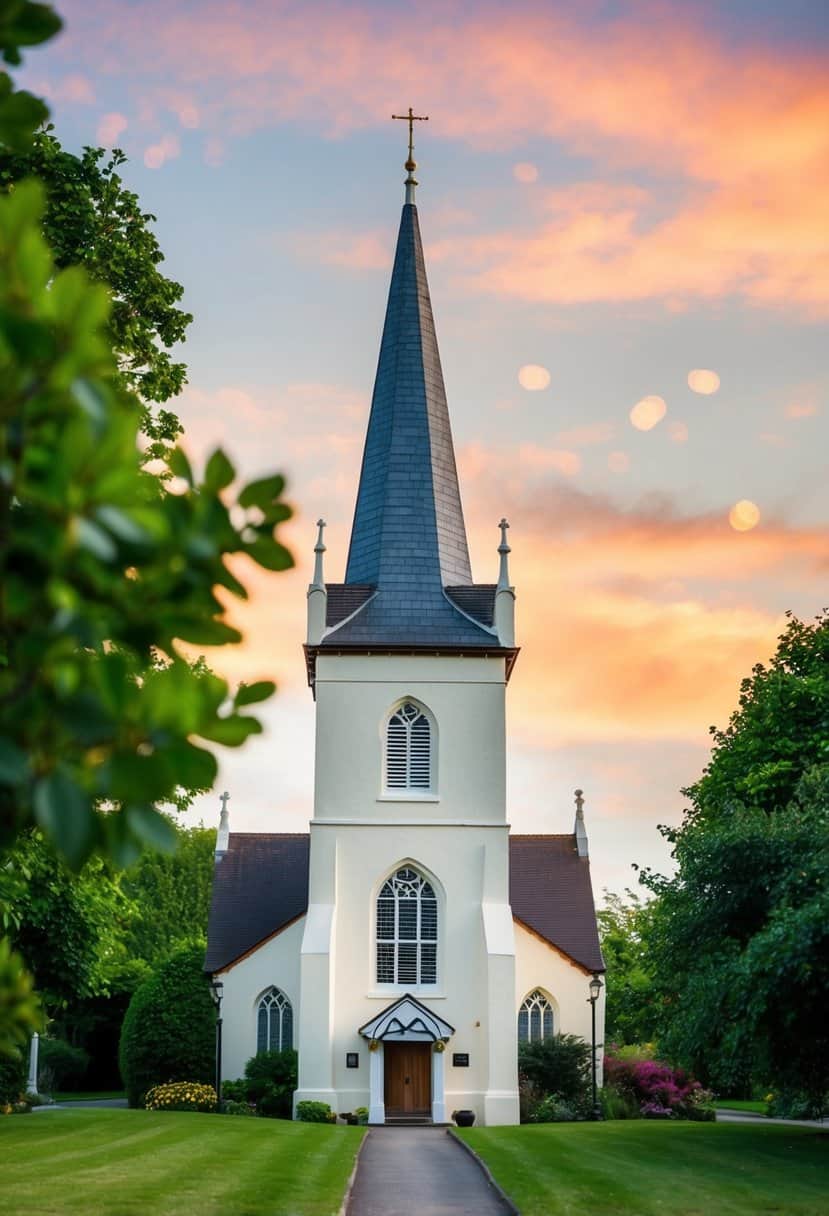
Planning a church wedding involves a series of exciting steps. From getting engaged to choosing the perfect venue, and making sure the wedding service covers everything important, each part of the planning process is both essential and special.
Engagement and Wedding Planning
After the engagement, you’ll start planning the wedding details. This involves setting a budget, choosing a date, and maybe attending a wedding fair to get inspiration. A wedding planner can help manage details or provide advice if you prefer to organize it yourself. Make a checklist to ensure nothing is forgotten.
List your priorities—such as guest numbers, theme, and any unique elements. It’s vital to communicate openly with your partner about your wishes and expectations. Early planning can alleviate stress and help make your day memorable.
Choosing a Wedding Venue
Choosing a venue is crucial to your church wedding. Consider if you’d prefer marrying in your local parish or are interested in a specific area. List potential churches, then visit them to feel the atmosphere and see the space. Ensure the venue can accommodate your guest list size.
Check if any restrictions apply regarding the time of year or day you want to hold the ceremony. Talk to the vicar about your plans and ask any questions about the venue’s policies. Always book well in advance to secure your preferred date.
Wedding Service Essentials
The wedding service is the heart of your special day. Discuss with the vicar what the ceremony will include and any personal touches you wish to add.
Decide on the order of service, music, and any readings or prayers. If you want, a Catholic priest can participate alongside the Church of England vicar.
Ensure you know what legal documents are needed before the wedding day.
Consider a rehearsal to ensure everyone involved understands their role.
Plan for decorations, keeping them simple if needed based on church guidelines.
This ensures a smooth, meaningful ceremony aligned with your vision.



